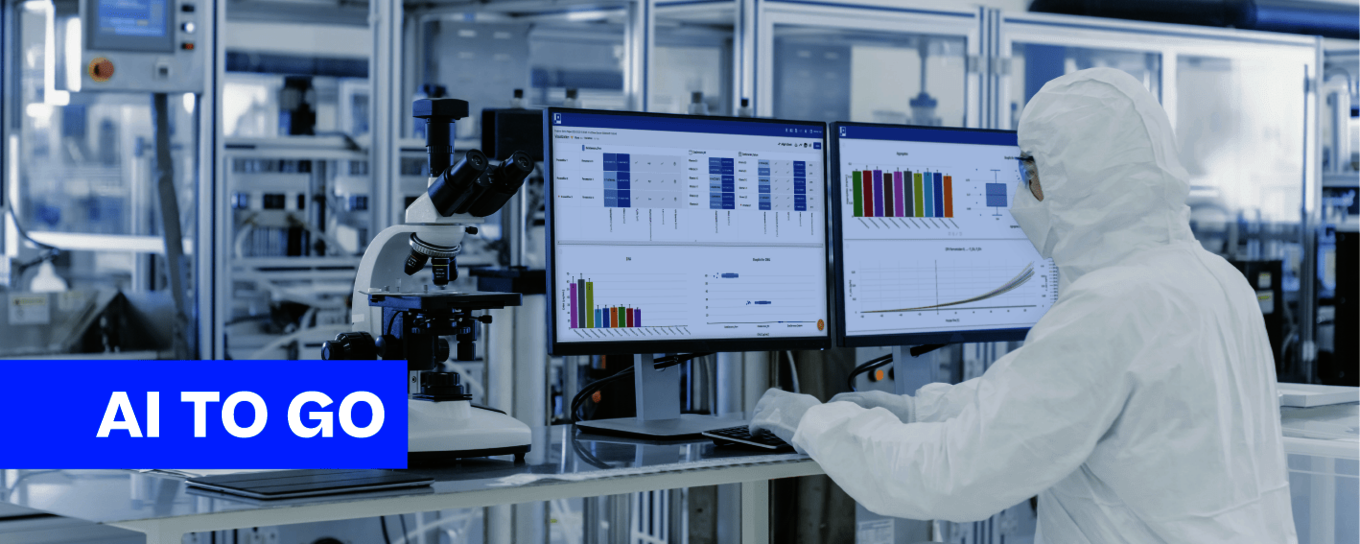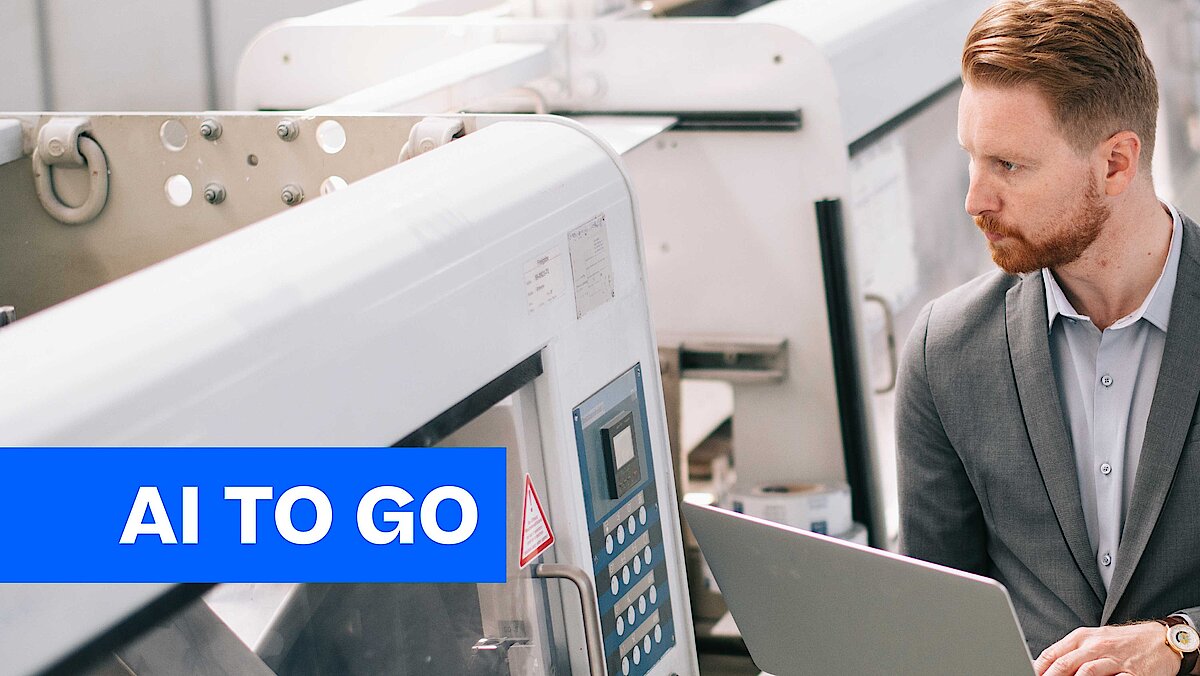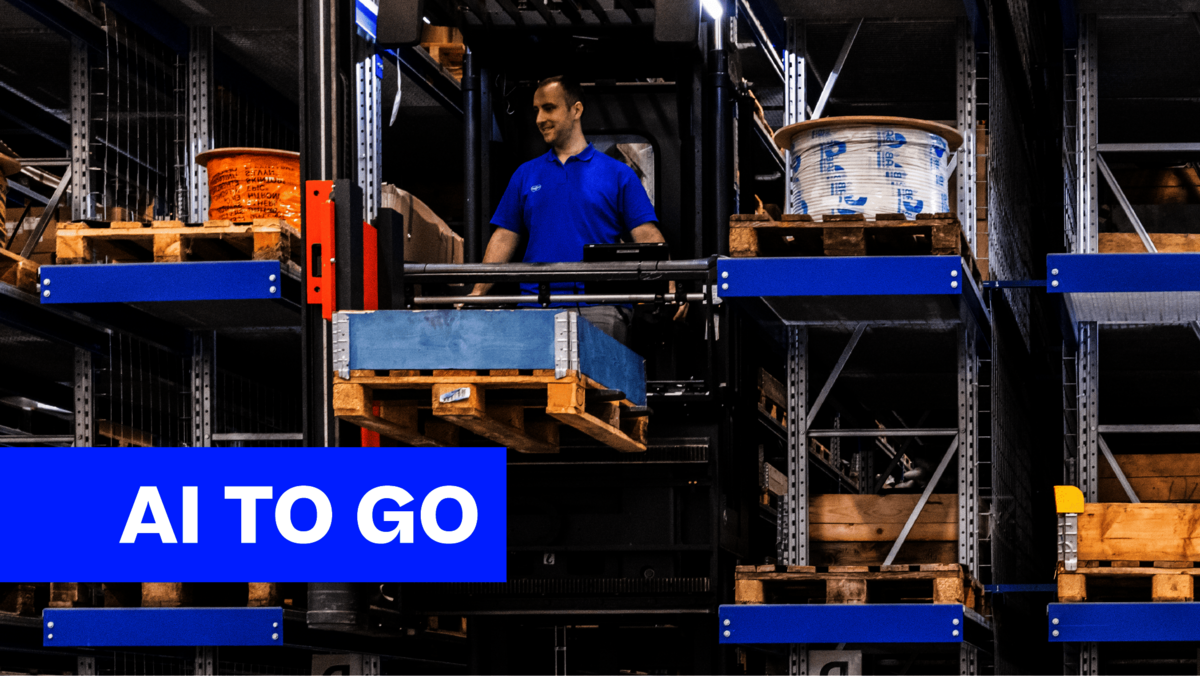Nowadays, everything is about AI, but the real topic in the Pharma Industry is reaching the digital maturity model - calculating organization's ability to create value through digital. Artificial intelligence has the power to drive outstanding productivity improvements, better outcomes across the value chain, and creating new offerings and business models. AI and big data have triggered a fundamental shift within the pharmaceutical industry's innovation paradigm. The opportunities in AI can transform businesses, from developing drugs to how we engage with our stakeholders.
Pharma companies must digitize their business models holistically on a long-term basis to be at the forefront of innovation and achieve the digital maturity - and AI can help. From 2025 it will be "Artificial Intelligence first", with hyper-connected and self-adjusting production.
Why implement AI in the pharmaceutical industry
By embracing innovative machine vision technology, the pharmaceutical industry can revolutionize its line clearance activities, automating tasks previously reliant on manual inspection. Reducing human-prone errors is a significant outcome, as AI-driven processes mitigate the potential for mistakes, safeguarding product quality and patient safety. Additionally, AI can reduce labour costs, speed up processes, optimize resource allocation, and enhance cost-efficiency.
Embracing AI enables the pharmaceutical industry to cultivate a robust connection between supply chains, processes, systems, and manufacturing through digitalization. The integration of AI empowers the industry to respond dynamically to market demands while keeping the highest standards of quality and compliance.
How to implement AI in Pharma
Artificial intelligence has revolutionized how we work by allowing us to work faster and more efficiently than ever. In the pharmaceutical industry, we can use AI to improve how we make products on a tiny scale - the "digital twin of production” - like a virtual test that shows us how to make a product and what it should look like, and this helps us make better decisions.
The flexibility inherent in AI algorithms allows the improvement of inspection criteria, leading to an augmented output of superior products, reduced errors, heightened efficiency, and an enhanced return on investment. This model of innovation finds application within internal frameworks, increasing customer support with an advanced approach. The collaborative journey encompasses the fusion of AI strategy, digital transformation, and data-centric practices. AI not only acts as a catalyst for innovation but also as a guide toward a dynamic and thriving future.
Facing the challenges of implementing AI in Pharma
The pharma industry faces fluctuation in production and difficulty in getting the right people for the job. We need innovative ideas, digitalization, quality, effective production operations and automated processes to develop a more effective strategy.
Since the pharmaceutical industry is a highly regulated sector and because we are dealing with people's health and safety, we are at the initial level of AI implementation. But there are other factors that will have a huge impact on the factory of the future, such as trends and value chain impacts. AI can also help us with sustainability challenges, and companies must be well prepared to question make their processes more environmentally friendly. We are at the beginning of a new era. We need to be fast to innovate, but the most important thing is that we do it safely.
Building an AI-driven future together
AI is changing the future of Pharma, and companies should work in an ecosystem model and focus on getting the best outcomes for themselves and their customers. After all, innovation in the Pharma Industry requires AI strategies, digital changes, and using data efficiently.
Want to stay updated on the newest trends and discussion in the Pharma industry? Check out the website of the Körber Business Area Pharma or our Venture InspectifAI!





